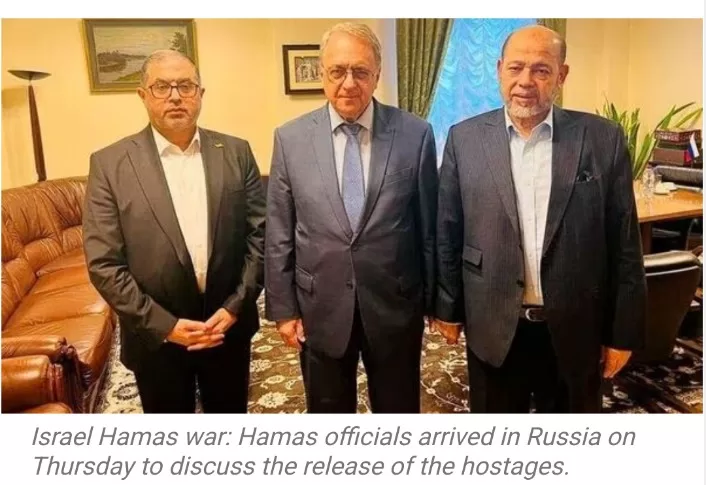In a striking development, Palestinian military group Hamas has undertaken a concerted effort to locate and subsequently release eight Russian-Israeli dual citizens who became captives during their audacious assault on Israel. The unforeseen attack initiated by Hamas on October 7th resulted in the apprehension of nearly 230 individuals. Remarkably, the Russian Ministry of Foreign Affairs, acting as an intermediary, has supplied Hamas with a comprehensive list of these individuals bearing dual citizenship.
Moussa Abu Marzook, a prominent senior Hamas representative, affirmed that they are diligently engaged in the quest to identify and secure the release of these detained individuals. He candidly acknowledged the challenges of the undertaking, yet emphasized their unwavering commitment to resolve this matter promptly once the requisite conditions are met.
In an earlier statement, the Kremlin candidly conceded that efforts to liberate Russian hostages had not met with success, while expressing uncertainty regarding the precise number of Russian citizens who had been ensnared.
Furthermore, Abu Marzook noted the nature of the situation, describing the civilians’ capture as a consequence of tumultuous circumstances. Western and regional officials had approached Hamas, appealing for the detainees’ freedom. Nevertheless, the tone of Moscow’s appeal is distinct and has garnered particular attention, underscoring the unique nature of Russia’s relations with Hamas.
Senior Hamas representative Abu Marzook recently arrived in Russia for high-level discussions aimed at orchestrating the release of these hostages. It’s noteworthy that Russia maintains amicable ties with Hamas and has embarked on a diplomatic endeavor to secure the liberation of hostages currently held within Gaza.
In an effort to maintain open channels of dialogue amidst the Israel-Palestine conflict, Russia defended its decision to host a Hamas delegation in Moscow, an essential diplomatic move. Amidst this backdrop, it’s imperative to highlight that more than half of the hostages detained by Hamas possess foreign passports representing 25 different nations, which includes individuals with dual Israeli citizenship.
The Hamas representative’s statement conveyed an important nuance, emphasizing that, in the eyes of Hamas, all captives are perceived as Israelis, despite the acknowledgment of their original citizenship. This distinction arises from the hope that acknowledging their original nationality may facilitate their eventual release.
As this intricate situation continues to evolve, the international community remains watchful, as diplomats work diligently towards a resolution that ensures the safe return of the hostages to their respective homelands.




